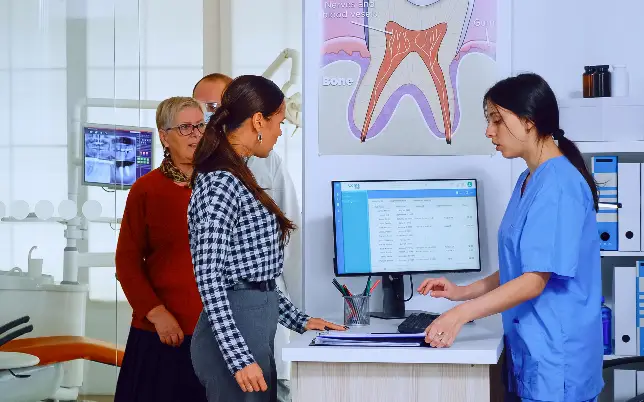
Data breaches in dental clinic occurs when unauthorized individuals gain access to, acquire, or disclose sensitive patient information. This information can encompass a variety of things, but typically falls under two categories:

Data breaches in dental clinic occurs when unauthorized individuals gain access to, acquire, or disclose sensitive patient information. This information can encompass a variety of things, but typically falls under two categories:
Data breaches in dental clinic can happen in several ways, including:
The consequences of a data breaches in dental clinic can be severe for both the practice and its patients. Here are some potential risks:
Dental practices can take steps to mitigate these risks by implementing strong data security measures like dental practice management software with robust security features, regularly training staff on data security protocols, and maintaining up-to-date security software and firewalls.
Here are several ways in which dental practice management software can help prevent data breaches:
By implementing these security measures and best practices, dental practice management software helps clinics minimize the risk of data breaches and protect patient confidentiality.
Dentsoftware / DENTZOFT is an industry-leading dental College software company with a strong track record of 13 years. They have clients across 25+ countries with a 5-star rated support system. It is an ERP-level system that can totally computerize the dental practice with dental charting, scheduling, lab work management, expense management, inventory management, Pharmacy, etc… Since the software is running in Dental colleges, it has in-depth information to cover, however, it is simplified for faster entries in normal dental practices. Watch a demo and feel the difference.